The Strive Eradication of Disability Foundation convened a major medical forum in Islamabad to address Spinal Muscular Atrophy and present a coordinated plan for diagnosis, emergency care and treatment access across Pakistan. The foundation’s 12-year journey under Founder and Chairperson Muhammad Yasir Khan was highlighted as the event opened, noting a sustained commitment to improving outcomes for children affected by this debilitating genetic condition.
Dr. Asim Ijaz, a UK-based consultant in emergency medicine, stressed that Spinal Muscular Atrophy patients are especially vulnerable in acute settings, where minor infections can rapidly lead to respiratory crises. He introduced the SMART approach—Support breathing, Metabolic and hydration management, Airway maintenance, Review baseline and Trigger identification—to guide emergency physicians in stabilising fragile patients, and cautioned against routine use of sedatives while urging c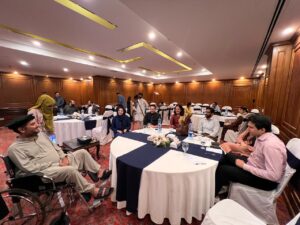 linicians to heed caregivers’ observations.
linicians to heed caregivers’ observations.
Dr. Maryam Tariq, clinical lead at Rawalpindi Medical College, explained the condition’s genetic basis as an autosomal recessive disorder driven by deletion of the SMN1 gene and described the four major SMA types from infantile onset to adult Type 4. She also drew attention to the substantial psychological and physical toll on families and called for compassionate, family-centred care alongside clinical management.
Dr. Waseem Ur Rahman of Shifa International Hospital reviewed recent genetic research and treatment breakthroughs, detailing advanced therapies such as Nusinersen, Zolgensma and Risdiplam. He credited the Strive Foundation with helping secure access to these therapies in Pakistan and shared accounts of children with Type 1 SMA who, after receiving Risdiplam, have survived past infancy and reached developmental milestones once considered unlikely.
Technology and patient support were showcased through the foundation’s new platform, strivefoundation.co, presented by Waqar Hussain and Muhammad Uzair Khan. The automated patient registration and sponsorship system allows caregivers to apply for funding while enabling donors to follow patient progress and medical updates, improving transparency in treatment support.
Saman Fatima, Development and Program Lead at Strive, reported that the foundation has delivered 65 treatment cycles to 29 patients and helped bring the FDA-approved drug Evrysdi to Pakistan. Collaborative efforts have enabled treatment for 102 patients nationwide so far, yet 45 registered patients remain on a waiting list, underscoring the urgent need for sustained funding and broader public support.
A special tribute recognised the foundation’s leadership, including Muhammad Yasir Khan, Director Majid Qureshi, Founding Member Syed Ali and early philanthropist Mazhar-ul-Haq Lone. In closing remarks, Majid Qureshi and Syed Ali thanked medical experts for their guidance and urged strengthened collaboration to boost fundraising and outreach for SMA care.
Muhammad Yasir Khan reaffirmed Strive’s mission to lead Pakistan’s response to Spinal Muscular Atrophy and warned that banking limitations on international donations and the withdrawal of some pharmaceutical companies from Pakistan have hampered access to life-saving drugs and research. He appealed for collective action to ensure treatment for every registered patient, invoking the Qur’anic teaching that saving one life is like saving all humanity and calling for generosity and unity as Ramadan approaches.




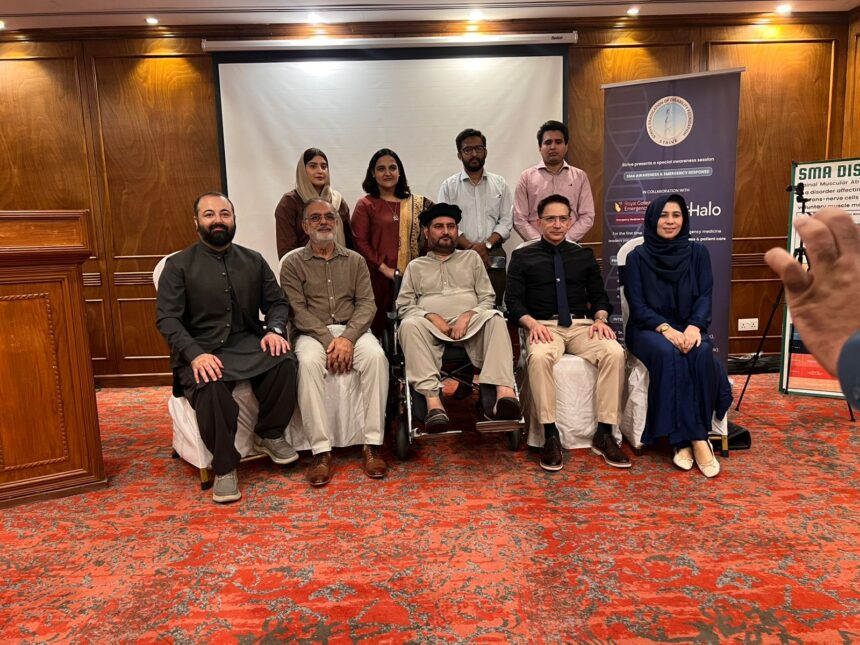
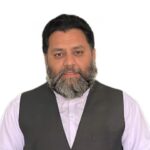

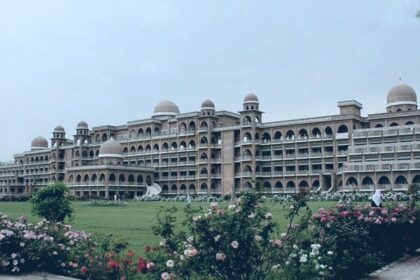

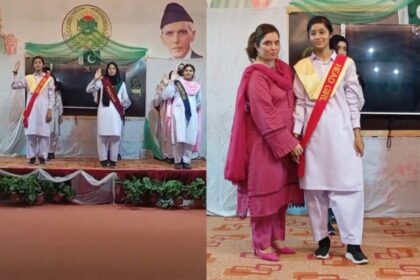
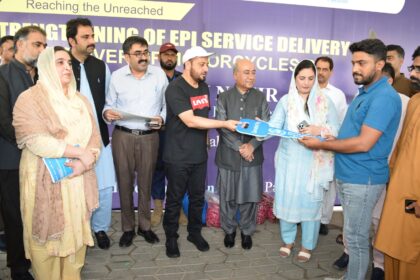

MashAllah it is an inspiring journey of the team, lead by Yasir Khan who I committed to achieve his Goals for STRIVE and NEVER GIVE UP resolve.
It is indeed the responsibility of others also to support STRIVE to help patients suffering from SMA.